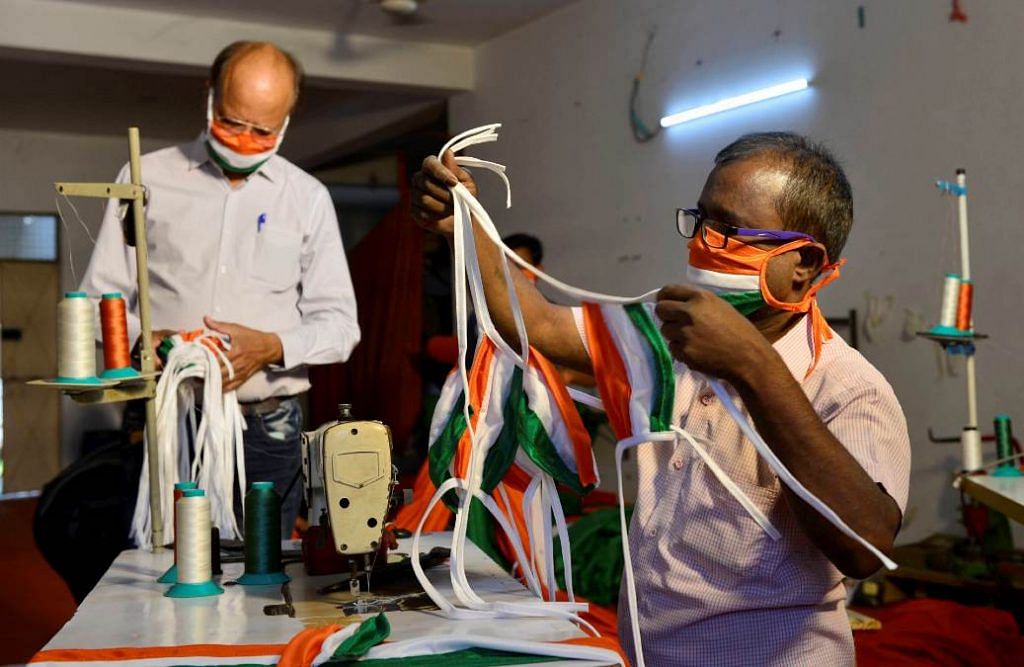New Delhi: The Modi government Friday issued a point-by-point rebuttal to a report by US-based think tank Freedom House that “downgraded” India’s ranking on its freedom index and classified it as a ‘Partly Free’ country.
In its statement, the government has said that the ‘Freedom in the World’ report is “misleading, incorrect and misplaced”.
The report had given India a ‘global freedom score’ of 67/100, after judging it on various political rights and civil liberties. The issues raised by the report included the alleged discrimination suffered by Muslims in India.
It also pointed to arrests of activists involved in different movements, and actions taken against some NGOs based in India.
The government, however, defended India’s freedom record, pointing to the fact that many states are ruled by parties other than the one at the national level, noting that they are chosen through an election process that is free and fair and conducted by an independent election body.
This, it said, reflects the working of a vibrant democracy, which gives space to those who hold varying views.
Also Read: Why India has slipped to ‘partly free’ category on freedom index & how countries are scored
‘All laws applied without discrimination’
Among other things, the report sought to note a “multiyear pattern” to “rising violence and discriminatory policies affecting the Muslim population” and “crackdown on expressions of dissent by the media, academics, civil society groups, and protesters” under the Narendra Modi government.
To this, the government said it treats all its citizens with equality, as enshrined under the Constitution of the country, and all laws are applied without discrimination.
“Due process of law is followed in matters relating to law and order, irrespective of the identity of the alleged instigator,” it said.
Talking about the February 2020 Northeast Delhi riots, it said the law enforcement machinery acted swiftly in an impartial and fair manner.
“Proportionate and appropriate actions were taken to control the situation. Necessary legal and preventive actions were taken by the law enforcement machinery on all complaints/calls received, as per law and procedures,” it added.
The report also flagged criminal charges filed against journalists, students, and others under “colonial-era sedition laws” and the Information Technology (IT) Act, saying they followed “speech perceived as critical of the government, notably including expressions of opposition to the new citizenship legislation and discussion of the official response to the Covid-19 pandemic.”
To this, the government said ‘public order’ and ‘police’ are state subjects under India’s federal structure of governance.
The responsibility of maintaining law and order, including investigation, registration and prosecution of crimes, protection of life and property, rests primarily with the state governments, it added.
“Therefore, measures as deemed fit are taken by law enforcement authorities to preserve public order,” it stated.
On lockdown
The Freedom House report also took note of the “significant hardships” suffered by India’s internal migrant population as a result of the government’s pandemic-related lockdown.
In response, the government said it took a number of steps to address the situation.
The lockdown period, it added, allowed the government to ramp up production capacity of masks, ventilators, Personal Protection Equipment (PPE) kits and thereby effectively prevent the spread of the pandemic.
India, on a per capita basis, registered one of the lowest rates of active Covid-19 cases and Covid-19-related deaths globally, it said.
The Freedom House report stated that NGOs, particularly “those involved in the investigation of human rights abuses, continue to face threats, legal harassment, excessive police force, and occasionally lethal violence”.
Under certain circumstances, the Foreign Contributions Regulation Act (FCRA) permits the federal government to deny NGOs access to foreign funding, and authorities have been accused of exploiting this power to target perceived political opponents, the report said.
In response, the government highlighted the Protection of Human Rights Act 1993, which provided for the constitution of the National Human Rights Commission and State Human Rights Commissions for better protection of human rights.
“The national commission is headed by a retired Supreme Court judge and works as a mechanism to inquire, investigate and make recommendations in cases where it finds that there is a violation of human rights in the country,” he said.
Referring to allegations that “academics face pressure not to discuss topics deemed sensitive by the BJP government, particularly India’s relations with Pakistan and conditions in Indian Kashmir and harassment to journalists”, it said “discussion, debate and dissent are part of Indian democracy”.
“The Government of India attaches highest importance to the safety and security of all residents of the country, including journalists. The Government of India has issued a special advisory to states and Union Territories on safety of journalists requesting them to strictly enforce the law to ensure safety and security of media persons,” it said.
The response also sought to justify temporary suspensions of telecom services and internet — as done in the wake of the Republic Day violence in pockets of Delhi-NCR — saying that they are imposed with the “overarching objective of maintaining law and order under strict safeguards”.
Talking about a 2020 FCRA amendment leading to freezing of Amnesty International’s assets, it said the organisation had received permission under the FCRA Act only once, 20 years ago.
In order to circumvent FCRA regulations, it added, Amnesty UK remitted large amounts of money to four entities registered in India by misclassifying the remittance as Foreign Direct Investment (FDI).
“A significant amount of foreign money was also remitted to Amnesty India without MHA’s approval under FCRA. This malafide rerouting of money was in contravention of extant legal provisions,” it said.
Also Read: A new freedom struggle for India must be based on a new nationalism. No short-cuts will do
